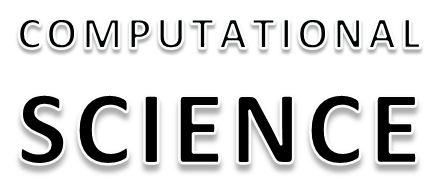Science is ‘going virtual’ in a big way: rapidly escalating computing horsepower is turning lots of real-world research into simulation-based experimentation. Is this helping or hindering the latest open science initiatives?
Get ready for a wild and tumultuous excursion into a strange labyrinth beset by such fearsome hazards as uncontainably ballooning data, insatiable entrepreneurial appetites, rampant academic befuddlement, unrelenting bureaucratic expansion and woefully under-informed but often rashly pursued good intentions
Watching this roller-coaster of a talk by Victoria Stodden at the Open Science Summit, you could be forgiven for imagining that the last open science talk that we covered in the iijwas from early years of The Enlightenment, rather than from a conference held in 2010: so much has happened since then in the field of open science.
a d v e r t i s e m e n t
Is your startup accelerator in trouble?
- is the whole thing starting to look like a ‘one hit wonder’?
- were the applicants below expectations?
- are you feeling out of your depth?
- is the schedule beginning to look unrealistic?
- are you beginning to feel that you ‘went native’ with the founders’ optimism?
You’re not alone
You need to talk to us
We’ve been studying startup accelerators
It turns out these problems, and a whole lot more, affect all accelerators in their early stages
They can all be put right
The academic, industrial and legislative establishment has in some cases (some tentative and others more wholehearted, and in yet other ways indifferent or even unsympathetic) embraced (or at least responded to) certain open science ambitions, and this has had repercussions which are now coming up against waves of further new developments which in many cases have rendered the existing provisions obsolete once more.
As helpful, diligent and wide-ranging as Victoria is obviously striving to be in this talk, one can’t help but feel overwhelmed by the sheer immensity of the task that the open science approach now finds itself confronting.
As if trying to cope with today’s ever-accelerating pace of scientific and technological development wasn’t demanding enough, trying to continually re-imagine how to systematise the way that we disseminate and share its methods and findings (in a way which offers the greatest opportunity for humanity as a whole to derive the most possible benefit from them) seems to pose a challenge at least as daunting as anything that even the founders of scientific revolution (who were only too aware of their profound ignorance of the underlying processes behind the natural phenomena that they were only just beginning to explore) could possibly have envisaged.
Victoria Stodden’s talk was a keynote presentation by at the Open Science Summit called:
Transparency in Scientific Discovery: Innovation and Knowledge Dissemination
It was held at the Computer History Museum, Mountain View California, on October the 22nd, 2011.
Here’s Victoria’s introductory abstract for the talk:
Open Science is an inescapable part of scientific research.
As computation assumes a central role in the practice of science, open science facilitates the reproducibility of published
computational findings, promotes innovation in academia and in industry, and provides access to scientific knowledge beyond the ivory tower.
In this talk I discuss the coming imperative of open science, and outline its implications for scientific integrity, the independent replication of results, the intellectual property framework for scientific knowledge, and public access to scientific knowledge
Here’s a brief biography:
Victoria Stodden is an Assistant Professor of Statistics at Columbia University, and completed both her Ph.D. in statistics in 2006 and her MLS in 2007 at Stanford University.
Her current research focuses on how pervasive and large-scale computation is changing our practice of the scientific method: especially regarding reproducibility of computational results and the role of legal framing for scientific advancement.
She has been a postdoctoral fellow at both Harvard and Yale Law Schools and MIT’s Sloan School of Business, won the Kaltura Writing Competition in 2008, and co-chaired a working group on the National Science Foundation’s Office of Cyberinfrastructure’s Task Force on Grand Challenge Communities (PDF, released Dec 2010).
She is also a Science Commons fellow, and a nominated member of the Sigma Xi scientific research society.


